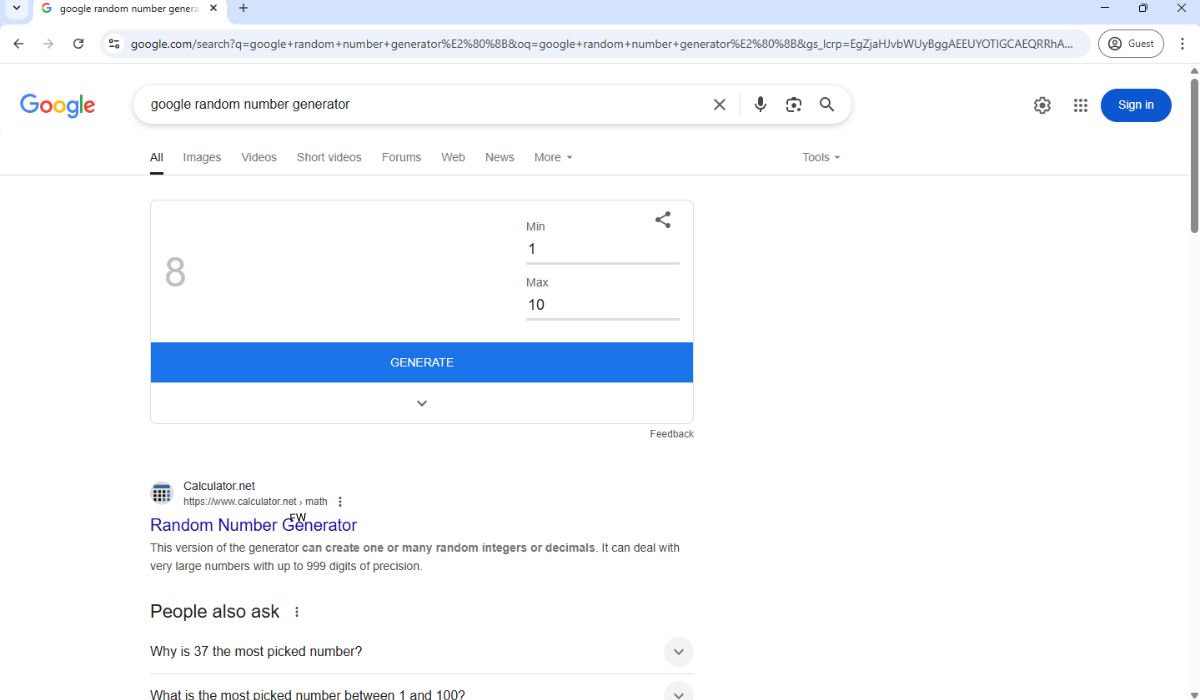When you search for “random number generator” on Google, you’re instantly shown a simple tool that lets you pick a number between any two values. Whether you’re flipping a virtual coin, choosing a lottery number, or assigning a random task, this built-in generator is fast and easy to use.
But how does it really work, and is it truly random? Let’s break it down.
What Is Google Random Number Generator?

The Google Random Number Generator (RNG) is a free tool that appears directly in Google’s search results. It lets you quickly generate a number between a minimum and maximum value you enter.
This tool works on both desktop and mobile and doesn’t require any app or download. It’s handy for simple decisions, small games, and classroom activities.
How to Use Google RNG
Using Google’s RNG is very simple:
- Go to Google.com
- Type: random number generator in the search bar
- You’ll see a box appear with two input fields: Min and Max
- Enter your desired range (e.g., 1 to 100)
- Click or tap Generate
- A number appears instantly in the result box
This tool doesn’t store your inputs and is free to use any number of times.
How Does Google RNG Work?
Google’s RNG uses a pseudorandom number generator (PRNG). This means it relies on a math-based algorithm rather than physical randomness (like coin flips or atmospheric noise). The numbers feel random, but like tracking codes used by courier companies, they’re actually generated based on an initial value called a seed.
While Google doesn’t publicly reveal which algorithm it uses, the RNG likely runs on JavaScript on the front end — meaning the number is produced right in your browser.
The logic behind this is:
- It’s fast and lightweight
- Doesn’t need to query a server
- Delivers results instantly for casual use
However, this means the randomness is not cryptographically secure, so it’s not suitable for tasks like secure tokens or serious gambling.
Is Google RNG Fair and Random?

For everyday users, Google’s RNG is random enough. It doesn’t repeat values in a predictable pattern and is unbiased across short-term use.
However, it is:
- Not tested for true randomness
- Not verifiable (you can’t audit or prove how it chooses each number)
- Not ideal for sensitive situations where verifiable randomness matters (e.g., lotteries or security)
If you need true randomness, sites like random.org use physical sources like atmospheric noise, which are harder to predict or manipulate.
When to Use Google RNG?
Google RNG is perfect for:
- Picking a winner in a simple giveaway
- Rolling a number in a classroom activity
- Choosing a random option from a list
- Generating mock data or test numbers
- Making decisions like “Who goes first?”
For these casual or day-to-day situations, Google’s RNG does the job well — it’s fast, free, and doesn’t require any special setup.
Conclusion
Google’s Random Number Generator is a fast and accessible tool built right into search. It works well for general purposes like making decisions, picking numbers, and having fun. While it’s not designed for high-stakes randomness, it’s easy to trust for everyday use.
If you use it often, bookmark the tool or add it to your home screen — it’s one of Google’s simplest, most useful built-in features.
